Graham Reid | | 17 min read
Head Alone
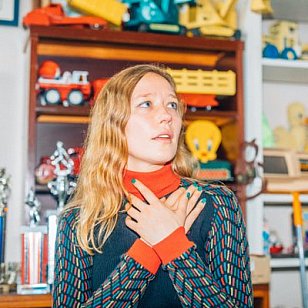
“Oh, I love the Andrews Sisters,” says Australian singer-songwriter Julia Jacklin of the famous close-harmony Forties and Fifties trio.
Jacklin is back in New Zealand for a day to talk about her new album Crushing and to play a brief showcase before a flight back to Sydney the following morning and more of the same. For weeks.
It's talk mode she is in . . . but as a smart, 28-year old whose Crushing just raised the bar for other singer-songwriters, especially young women, she has a lot to say and think about.
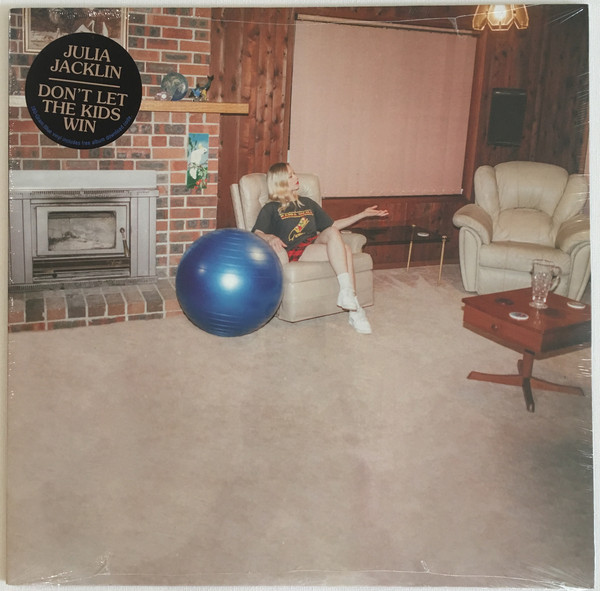 A bit over two years ago her debut album Don't Let the Kids Win – recorded and produced by Ben Edwards at his Sitting Room studio in Lyttelton – was met with unanimous acclaim and she was immediately on a constant cycle of touring and handshaking, of meet'n'greets and playing, then back in the car, van, plane or bus and moving on again. Then more of the same. For months. And years.
A bit over two years ago her debut album Don't Let the Kids Win – recorded and produced by Ben Edwards at his Sitting Room studio in Lyttelton – was met with unanimous acclaim and she was immediately on a constant cycle of touring and handshaking, of meet'n'greets and playing, then back in the car, van, plane or bus and moving on again. Then more of the same. For months. And years.
It was a life-changing couple of years which she admits she was not prepared for, and that no one can prepare for: “I cannot believe that people do this when they are 18,” she says shaking her head.
“I wish [industry people] would tell you how things work instead of treating you like you are a sensitive toddler or something.”
Did she ever think of that old saying, be careful what you wish for, you might . . .
“Just get it? Yeah,” she laughs. “I don't think I wished for this, it's more that I didn't know what this looked like. It's not really spoken about that much, what it's like to be a touring artist because you've got to keep up the illusion that it's fun time and party times.
“But there's a lot of sitting around. Especially all day sitting around waiting for that hour of emotionally charged, vulnerable, music-making in front of people.”
Jacklin is smart, thoughtful, candid but also self-protective . . . and her Crushing album holds up a prism to the life she now has and refracts back experiences: the too many touchy-feely guys she has encountered; how to hold friendships together; how to have your own space in a crowded life of expectation; what it means when a relationship breaks up but you still care yet friends want to drag you out on the dance floor and back in the dating game when you'd rather just consider what just happened in that relationship . . .
All that and more is in the lyrics of strong, identifiable songs on an album wrapped up in a cover of her looking like she's throughly enjoying life.
 “Yeah, people kind of think I'm a sad person or that everything I do is covered in some sort of melancholia, so it's important to me to represent another side of me [on an album cover]. Because I am quite playful and positive. I find especially with this new record there were people who were like, 'a black'n'white photo of you looking sombre down the lens to show the new maturity . . .'
“Yeah, people kind of think I'm a sad person or that everything I do is covered in some sort of melancholia, so it's important to me to represent another side of me [on an album cover]. Because I am quite playful and positive. I find especially with this new record there were people who were like, 'a black'n'white photo of you looking sombre down the lens to show the new maturity . . .'
“But that's not me. And that would make people listen to the music differently I think.
“I think this new record might be very heavy but it's also hopeful and there's something very positive about it.”
And there certainly is, the closing track – which we talk about in a digressive 45 minutes while she picks a vegetarian wrap – is the work of someone wise beyond her years. And someone who has been constantly touring, but also has those hours of often boring downtime while traveling or just waiting to go on . . .
Can you take yourself out of that place where there is just nothing going on. Some people paint, write poetry, read books to take themselves out of that space. What do you do to focus yourself outside of what you have to do, and want to do?
I'm not sure really. I read a lot but once I started touring I listened to music less and less, I just needed to rest the ears. It's something I'm still figuring out. Sitting in a car all day, it's hard to do things, but also emotionally hard for me to feel like I'm not being productive.
So do I have just have to accept that I'm not going to be productive when I'm touring outside of playing music, or do I have to find some kind of appropriate hobby? (Laughs)
I've been learning drums for a year and that's something I do on my day's off and that's something that focuses my mind. Even though that's still in the music world it is something different from what I do.
 I'm curious to know if the songs on the album were written while touring or were they written on reflection after?
I'm curious to know if the songs on the album were written while touring or were they written on reflection after?
Most were written on tour, in the car actually . . . so I suppose I was being productive! I keep a journal so most of them were written off guitar in the car, and then I'd get to soundcheck and have a little play on them with the band. I wrote a couple in a month after I finished touring and started recording.
The old joke is you have five years to write your first album and five months to write your second, but you went in with a body of work for Crushing?
Yeah. It's been a strange couple of years because the first record did a lot better than I ever imagined, although I couldn't imagine anything.
That was strange, even just that realisation that, 'Oh, I'm a professional musician and songwriter now to the exclusion of all other avenues'. So I was touring as a songwriter, but I couldn't write for about a year and half, and that was strange because I'd always written songs.
And suddenly here I was, a professional songwriter who was not writing any songs. That was a weird place to be in because I just got to the point where I thought, maybe I just won't write any more, maybe that first record was all I had in me?
And so I never felt the second album pressure, it was more that I was sad that I'd stopped writing.
But somehow the songs just started to come back. It was almost when I gave up on the idea of making a second record that they started happening again.
It's funny talking about this because people do ask about the pressure of a second album but I didn't feel it because they just came very quickly. It felt like going was great, I had 12 songs ready and I liked most of them (laughs)
They are much liked already, you've seen the early reviews.
Yeah, I have. Yeah.
My reading is that it is a very candid album which is about you and your experiences, but I also get the universal quality behind many of these songs, what you are writing about are similar personal things which also affect other people. Were there times when you thought you needed to pull back, that there was too much of you going out there. Or did you feel you just had to let it all go?
I think I'm only starting to think it was to but now when I am talking about it. (Laughs) Because at the time it was such a personal experience writing it and I didn't share any of the songs with the label or my management . . . which they were really frustrated about.
But I was in a pretty lonely place when I wrote it.
That comes through, that the touring life is not all its cracked up to be and that relationships go by the board and so on.
Yeah. I wrote it in such a bundle and that made me feel good to do it that way and yes, it is candid, and I think it is obviously about me. But I am still choosing what I am showing to the world.
I think sometimes now that people think I'm willing to talk about everything in my life and that I will get down to the nitty gritty. But there are so many thoughts and feelings that I would never share in an interview about my life. It's definitely not like reading my diary, it's a very curated version.
As you said, I think people can relate to the songs because even though it is personal nothing on there is . . . once you start singing them to people they respond 'Yeah', so it's personal, but they are pretty common experiences.
It's quite conversational too, Convention for example.
Yeah.
In terms of your style, words on a page then lots of editing?
Yeah, but I feel like with this one I was a little less inclined to over-edit the lyrics whereas the first one I was would go through every line thinking, 'How can I make this better?' I think then I was wanting things to sound a bit more poetic and metaphorical. Whereas this one I tried to just leave some lyrics as like the first thing that came out instead of being too . . .
I didn't want to make anything too complicated, or too hard to understand just more how they came out.
I thought good writing was meant to be hard to understand, because as you grow older the greatest writers all seem to write unreadable books . . . so you think you have to write stuff that nobody understands!
The album opens quietly with Body which is remarkable song. You don't go in with bang but more of a whisper. Did the record company recoil a bit when you had the album open with something as quiet and intense as Body? Although that way it is counterintuitive and gets people in.
I think it's a good way to weed out the people who are not going to give you time. (Laughs)
There are always ways you shoulddo things, but what I love about this industry is that nobody knows what they are doing. Everything is up for grabs and it's kinda funny when these people come in and say, 'No, it's good to start with the album off with something which will blow them away and then you can introduce them to the other material'.
But that's been done all the time, so maybe I can do the opposite and that might actually work.
It's all changing.
Indeed, the idea of three singles then an album is gone. Some people never even do an album. Why did you do one?
I did an album because I personally love albums and I guess I'm 28 and I'm not . . . if I was 20 I'd probably have another view but at my age I still think albums are important. People say they aren't and I think, 'Well maybe in your world, but the music I like is albums and the people I work with we are all album people'. I grew up with albums and maybe that's on the way out but it feels like a body of work.
When you die you can look at something tangible you created from nothing and built something. So it makes me feel I am creating a body of work.
 The cover photos on your albums? They interest me.
The cover photos on your albums? They interest me.
Yeah, I work with my friend Nick McKinlay and he's done all my photos from the start. Album covers are mysterious beasts and you just never know. We probably tried five before we landed on that one and you don't even know why the first four didn't work.
It's so important to me to try to capture my music visually and that's so hard to do because the albums are both so different and I guess on this second record especially – and with the first one, because my music is quite personal and sad (laughs) – people kind of think I'm a sad person or that everything I do is covered in some sort of melancholia.
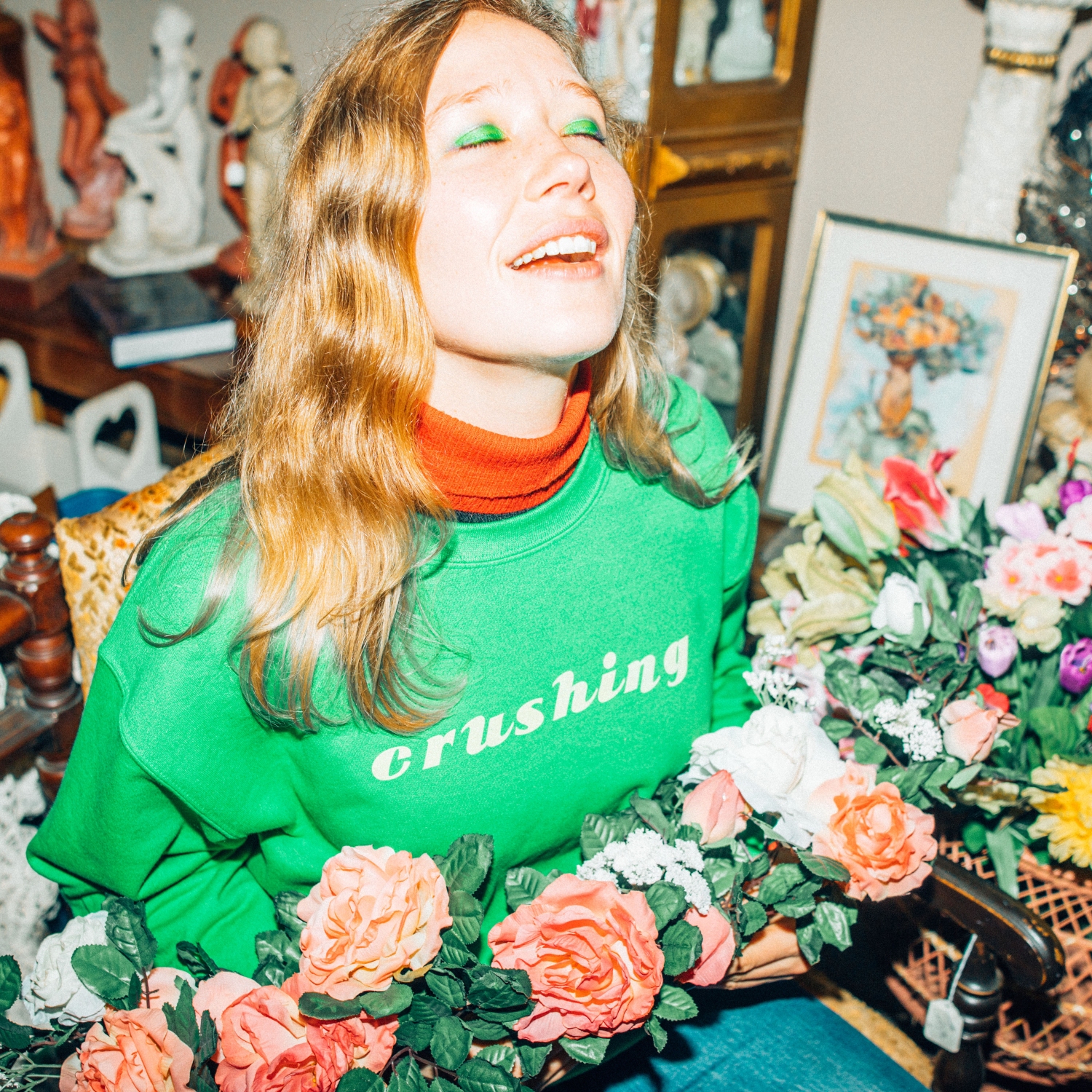 So it's important to me to represent another side of me because I am quite playful and positive. I find especially with this new record there were people who were like, 'a black'n'white photo of you looking sombre down the lens to show the new maturity . . .'
So it's important to me to represent another side of me because I am quite playful and positive. I find especially with this new record there were people who were like, 'a black'n'white photo of you looking sombre down the lens to show the new maturity . . .'
But that's not me. And that would make people listen to the music differently I think.
I think this new record might be very heavy but it's also hopeful and there's something very positive about it.
I hear someone who has come to terms with all these things and is not just surviving them but accepting them with equanimity: death, loss, friends who have disappeared through circumstance . . But that's not necessarily a negative thing.
Exactly. Good!
If I said the word 'domestic' about the two covers would that insult you?
No, not at all.
I see domesticity and warmth. But Crushing is an interesting word, quite ambiguous.
Yes, I had a deadline and a few people said I should call the album Body. And I would just not do that because I knew that speaking about my body – and as a woman in the world – that was already going to open up some weird dialogues.
I didn't want to read any #MeToo think-pieces about this record because that's not to me what it is.
I just wanted a strong word that didn't beat you over the head with what it's about but it is a bit intriguing. It was a word which just kept coming to me when thinking about titles. It's a heavy word but can be used in so many different ways.
A 12-year old might say you are crushing it, and you might say the touring life is crushing.
Exactly!
By the way, did you knit the sweater?
(Laughs) I was on tour when when we took that photo, we got the jersey made in New York and we were just driving through Pennsylvania and took the photo that day and it just worked.
Let me ask you about Don't Know How to Keep Loving You on the album, that's a very mature piece of thinking as much as anything else. The way I read it, that is something you think about when you are older. I've been married 15 years and I should think about it. But you are . . . 28? Where does that come from, the idea of thinking that idea of being in a sustained relationship and how to grow in it?
(Laughs) Yeah, the difference between my generation and yours is its this thinking and talking about monogamy in the longterm as unrealistic. We've been set up to live these lives that are not actually making us happy. But someone like me who is a hopeless romantic – but also a very excruciating realist – struggles to know what to do in that space.
I totally understand where a lot of people are coming from in my age group or younger in this new world order, I 100 percent understand that. But also I want to buy into that traditional thing, I want to be in love and I want to be in love for a long time but I think I am in the middle of both worlds, it's like either having to suspend my belief or . . .
You see, I grew up up . . . My parents divorced when I was very young and got married again and so my view of longterm relationships growing up was not very good. So I've had to look for examples in pop culture and movies. I think it's very confusing for people my age to . . .
Now it's not: get married and have kids and that's what you do.
There are so many other options now and it can be pretty sad and confusing I think for a lot of people.
The thing I take from that lyric is that you are hard on yourself in a relationship.
Yes! (Laughs)
There's that wonderful song by Rosanne Cash, I'll Change for You. When I heard it I wondered why she should feel the need to change for him? I got some of that from your song, that you would be the one prepared to make all these moves and changes and sacrifices to keep the relationship?
Yeah, I think I'm incredibly hard on myself. (Laughs). But I love the part of me which overthinks everything because I think that what makes me a good songwriter. Because I can't just be in relationship without thinking about all the different things about it. Also in my friendships and family I'm always assessing things and thinking about ways of making it better, whereas I think some people can just drift through.
I wish I could be like that in my personal life . . . but I think it helps in my professional life to be like that!
Your career has taken off in such a way that I imagine your personal life has been sacrificed in terms of say friends you had you might not have seen for a while.
Yes, it's been a couple of years of intense change and I've had to grow up a lot faster than I probably would have.
You think you were prepared better than others because you were just that little bit older?
Yeah, and it makes me think I cannot believe that people do this when they are 18. I don't think I was ready, but I don't know who would be ready because there is such a lack of conversation about what it is actually like and what is required of you.
Because essentially you go from where you write songs and play shows occasionally and make a couple of Instagram posts to being your own business essentially with your friends who are your employees in a sense, and you are on the road and very stretched and learning as you go how this whole industry works.
Because it is this mysterious, fun industry you're not supposed to talk about all the logistics and a lot of the industry people don't want to talk to you about the logistics because 'You are an artist'. They treat you different and I wish they would tell you how things work instead of treating you like you are a sensitive toddler or something. (Laughs)
There's not much conversation about what its like so you do have to learn it as you go.
I've got good management and you slowly realise, 'Okay, this is what the lifestyle is, this is what I need, if I ask for something I don't care if someone thinks I'm being difficult because I've got make sure I am being treated well'. And I've good people around me and I get space when I need it.
At the beginning you go, 'It's okay if I never have a single second to myself because I want to be so undemanding and you don't want to be difficult in any way'.
But being on the road for two years without having a single night in a room with nobody else, that is not good. It is very unnatural.
So how did you cope?
I have very good friends and I have people who accept me for just who I am. I've got good people around me who have my back 100 percent. And they accept that every once in a while we might have to spend an extra $100 so I can have my own room for that night. Just little things like that which I would never have asked for earlier. For me it's being able to ask for things like days off.
As an Australian artist, as with New Zealand artists, it is so expensive to leave our countries. Once you are in Europe or America everyone wants to work you so hard for so long because they want to make the most of you being there. So it is important for me to look through my schedule and say 'That looks crazy, I'm not going to do three weeks without a single day off' whereas before I'd say 'Yeah that's cool, no worries'.
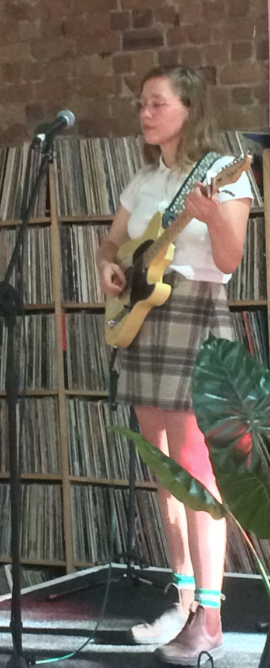 You can look ahead for the next year, 18 months. Booked up, right?
You can look ahead for the next year, 18 months. Booked up, right?
Yes it's weird. For me as someone who doesn't particularly like routine and likes a lot of alone time it is a very bizarre way to live (laughs).
It's changed a lot with social media also which removes you even further from where you are. Because so much of your job exists now on a phone it's even harder to look up and out the window, and that presents a new challenge.
I'm getting better at it all. And I have time off.
I've also made many friends around the world so if I go into a city I can say, 'I'm not going to stay in that hotel we are going to someone's family home and get a home-cooked meal'. That recharges you so much. Hotels are not that romantic anymore. 'Here we go, another Super 8.'
I read Paul Kelly's book How To Make Gravy and he thinks about it like, you need to have a little prison workout session you can do in a hotel room. So I have weights and a skipping rope to do a five minute skip in a carpark and I lift some weights. Because many days you are going, 'I could never fit exercise in' but you have to. It's not about looking hot it is about moving your body beyond sitting in a car or standing on a stage.
A song that also interests me: Comfort. That idea which is not commonly addressed. A relationship that breaks up but you still think about that other person, like Marlon's “what'll I do when you are in trouble . . .”
I think my motivation for writing songs is about me feeling a certain way and needing songs to express that, especially when it comes to heartbreak. I'm sure there are a lot of songs out there like this that I haven't heard, but there doesn't seem to be a lot of songs out there about how devastating it can be for you, even if you ended the relationship.
There are so many songs about being angry with someone for leaving you, songs about 'good riddance, get out of my life' but if you are the person who ends the relationship it can be equally – if not more sad – for you.
It doesn't mean it's like 'goodbye toxic person' because sometimes you love someone so much but you know it's not going to work. So I think about Fiona Apple's song Not About Love which I heard when I was 13 and it really cut through to me and I love that song because it had that line, 'it's not about love, 'cause I'm not in love, in fact I can't stop falling out, I miss that stupid ache'.
I loved that because it was talking about how sad it is when you fall out of love with someone and how powerless it can make you feel about your own emotions.
Comfort was never meant to go on the record, I sent it to a few people and it was a song I wrote for myself and friends who'd gone through the same thing. I was thinking, 'maybe we all need this'. It was nice that they really liked it and said I should put it on the record.
To me its important in this world to be kind and caring to people who have been through that. I think the other thing is Pressure to Party on the album which is a bit like that. If you've broken up with someone and you are feeling like the bad guy, but people just assume you want to get back out there: 'You ended it so lets go dance the night away and maybe you'll meet some new people, you are finally free'.
But that's not how it is for for many people.
I think it's only the Kardashian world that does that.
Yeah (laughs)
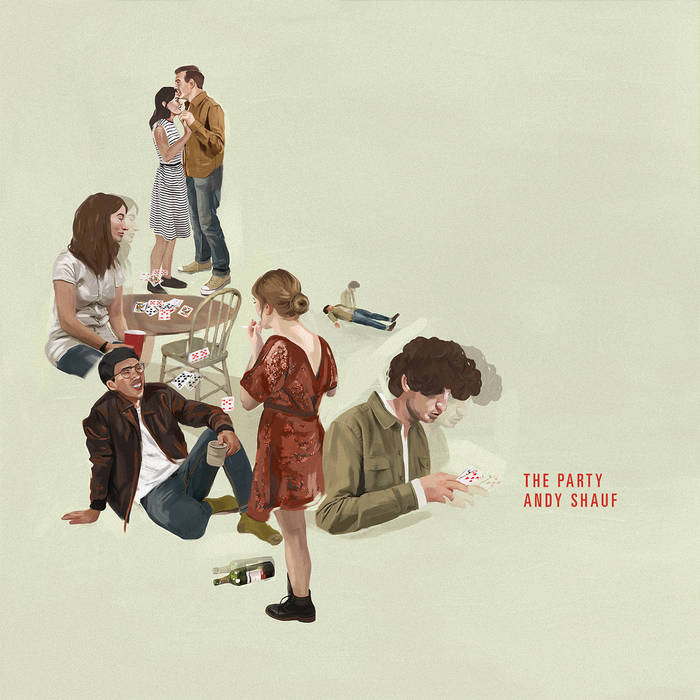 You can tell I am writer because I haven't asked you about the music at all, let me ask you about music then. I love your music because you cleave to values of verse-chorus and often evokes certain Fifties songs and a classic structure which I don't hear a lot, and not at all in r'n'b. Who do you listen to right now?
You can tell I am writer because I haven't asked you about the music at all, let me ask you about music then. I love your music because you cleave to values of verse-chorus and often evokes certain Fifties songs and a classic structure which I don't hear a lot, and not at all in r'n'b. Who do you listen to right now?
Leonard Cohen is the go-to guy but I'm listening to a lot of new stuff like Mitski and Japanese Breakfast, the new Gurrumul record, I was obsessed with the Andy Shauf, I listened to his Party record for too long, far too long.
I grew up listening to a lot of Fifties music, my mum introduced me to Doris Day, the Drifters, the Andrews Sisters.
Now that's not a name I thought I'd hear today.
Oh, I love the Andrews Sisters. And also I heard a lot of Irish music and my dad was from England so I heard a lot of Billy Bragg . . . which I hated as a kid but I grew to love and appreciate it.
Songwriting to me is such a beautiful art form, all bets are off sometimes.
But it's also nice to work within the rules or the structures that have been set and find a little way of pulling out from them and leaning into them.
TOUR DATES
Wed 27 Feb – Blue Smoke, CHCH
Thu 28 Feb – The Cook, Dunedin
Fri 1 Mar – Hollywood Avondale , Auckland
Sat 2 Mar– San Fran, Wellington


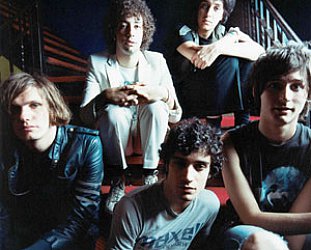
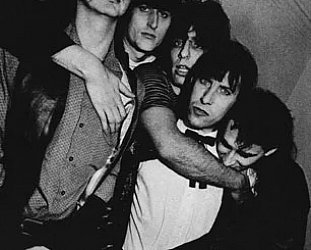
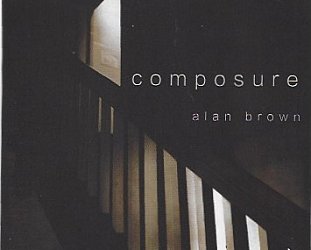
post a comment